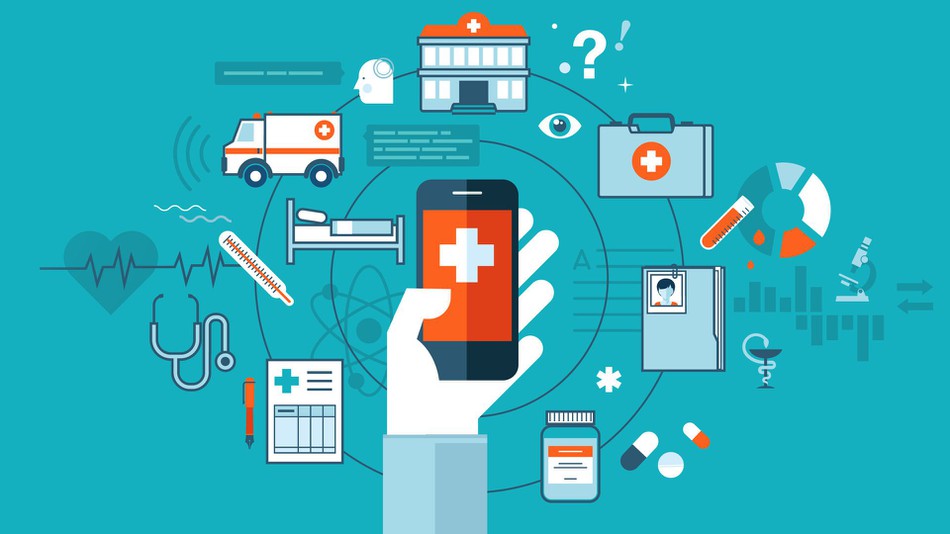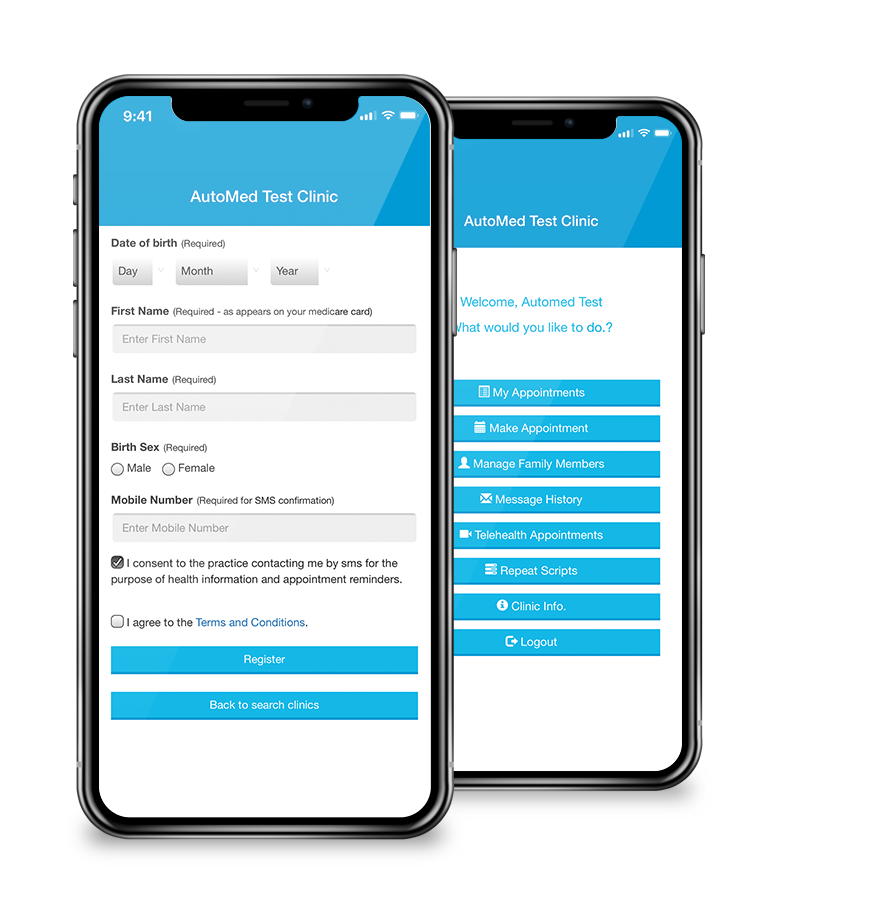Finest Practices for Establishing a Mobile App for Clinics That Satisfies Patient Requirements
Finest Practices for Establishing a Mobile App for Clinics That Satisfies Patient Requirements
Blog Article
The Future of Health Care: Why Clinics Need a Mobile App Today
As the medical care landscape continues to develop, centers deal with mounting stress to adapt to person expectations for greater ease and ease of access. The combination of mobile applications can function as a vital method for enhancing person engagement and improving procedures. By leveraging modern technology to enhance communication and supply essential services, clinics not just resolve existing needs but also place themselves for future success. Nonetheless, the implications of this shift prolong past plain operational efficiency; they might redefine individual partnerships and care distribution in profound ways. What might this transformation appear like for both clinics and people?
Changing Individual Expectations
As the landscape of health care advances, client assumptions are going through a significant improvement. Today's patients are significantly seeking convenience, accessibility, and customized care.
In addition, people are ending up being extra informed and empowered, typically researching problems and treatments online prior to assessments. This increased understanding is combined with a need for openness in medical care processes, including expense estimates and therapy options. Consequently, providers are forced to adapt by taking on digital devices that improve the patient experience.
The assumption for prompt and efficient interaction has actually never been greater, with many clients taking into consideration responsiveness a crucial part of quality care. mobile app for clinics. In this progressing landscape, health care organizations must recognize these altering assumptions and utilize mobile applications to promote a much more patient-centric approach, ensuring that they not only satisfy but surpass the requirements set by today's educated consumers
Enhancing Person Involvement

Mobile applications help with interaction between clients and doctor, enabling real-time consultation scheduling, suggestions for drug adherence, and straight messaging features. These performances not just improve comfort however additionally develop a sense of accountability among people. Moreover, mobile applications can supply academic material customized to specific demands, helping clients better recognize their problems and therapy alternatives.
The integration of gamification aspects within medical care applications can likewise encourage individuals to participate in healthy and balanced actions, enhancing favorable way of life modifications. By tracking development and rewarding success, people are a lot more most likely to remain dedicated to their health and wellness goals. Ultimately, improving person involvement with mobile applications leads to boosted health and wellness outcomes, better client contentment, and an extra collaborative healthcare experience. Centers that prioritize this facet will likely see a considerable influence on the high quality of care supplied.
Improving Clinic Workflow
Improving center operations is crucial for boosting operations efficiency and optimizing person treatment. The implementation of mobile applications can considerably decrease management problems, enabling doctor to concentrate extra on patient communications. special info By automating visit scheduling, individual check-ins, and payment procedures, centers can reduce wait times and improve general operational effectiveness.
Mobile apps also promote real-time access to individual documents, enabling medical care specialists to make educated decisions rapidly. This immediacy not only improves the top quality of care but additionally reduces the possibility of errors connected with lost or outdated info. Leveraging mobile innovation sustains an extra orderly method to taking care of patient follow-ups and treatment strategies, guaranteeing that no critical steps are neglected.
This allows for timely replenishment and assists avoid interruptions in person care due to equip shortages. By incorporating these capabilities into their day-to-day procedures, facilities can produce a much more cohesive and reliable setting, eventually leading to enhanced client end results and satisfaction.
Improving Interaction Channels
Reliable interaction is frequently pointed out as a cornerstone of high quality medical care shipment. In today's hectic clinical atmosphere, mobile applications can dramatically boost communication channels between facilities, individuals, and doctor. By integrating mobile applications into their procedures, clinics can help with real-time communications, making certain that people receive prompt info concerning their visits, test results, and therapy strategies.
Mobile applications likewise encourage individuals to communicate straight with their medical care groups via safe and secure messaging attributes. This straight line of communication cultivates a feeling of engagement and enables for immediate clarification of worries, which can result in better adherence to therapy methods. Push alerts can advise patients of upcoming visits or medicine timetables, reducing no-show prices and boosting general health and wellness end results.

Staying Competitive in Medical Care
In a swiftly progressing health care landscape, companies must focus on innovation and versatility to maintain an one-upmanship. The integration of mobile applications right into healthcare services is no much longer optional; it is vital for clinics aiming to boost individual involvement, streamline procedures, and improve general service distribution.
As people progressively depend on electronic platforms for wellness administration, facilities that fall short to embrace mobile modern technology risk falling back. A properly designed mobile app can provide functions such as consultation scheduling, telemedicine appointments, and accessibility to clinical documents, providing individuals with comfort and cultivating commitment.

Competitors are likewise spending in mobile services, so staying ahead requires continual renovation and remaining notified concerning technological innovations. Centers must not just apply mobile applications but also participate in normal updates and refinements. Eventually, the effective combination of mobile innovation will differentiate forward-thinking health care organizations and established the benchmark for patient-centric care in a digital globe.
Verdict
In conclusion, the combination of mobile applications in facilities is important to attend to the evolving landscape of client assumptions. Ultimately, the strategic implementation of mobile apps stands for an essential action toward providing tailored and obtainable medical care, therefore meeting the needs of today's empowered patients.
Ultimately, improving person engagement with mobile applications leads to enhanced wellness outcomes, better individual satisfaction, and a more collaborative medical care experience.Mobile applications additionally help with real-time accessibility to patient documents, allowing medical care experts to make educated choices quickly. In today's fast-paced clinical environment, mobile applications can dramatically boost communication networks between clinics, people, and health care service read what he said providers.Mobile applications likewise empower individuals to communicate straight with their healthcare groups through safe messaging features. Inevitably, the tactical execution of mobile apps stands for an essential action toward providing personalized and easily accessible healthcare, thus meeting the needs of today's equipped people.
Report this page